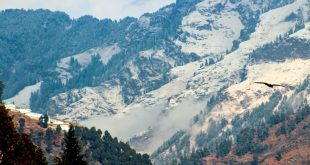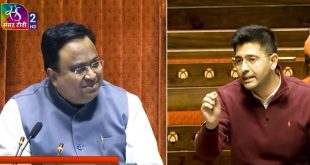[ad_1]

Bikaner: In Rajasthan, 32 pastures developed in 864.32 hectares of 25 gram panchayats of Bikaner district are becoming an example for the entire state. In these pastures where grass has been grown for abundant consumption and cattle. This pasture, along with employment of MGNREGA workers, is becoming a means of economic empowerment for the women’s self-groups of Rajvika.
Collector Bhagwati Prasad Kalal said that Bikaner is a district on the international border. The climate here is arid with a large number of animal wealth. These animals require a large amount of nutritious fodder. Keeping this in mind, a model pasture was innovated in the district. He informed that these pasture works were taken up under MGNREGA and for them a total cost of Rs. 1101.73 lakhs was sanctioned.
Bikaner has the second highest number of workers
The District Collector said that 10 model pastures in 286.32 hectares of 8 gram panchayats of Bikaner Panchayat Samiti and 9 model pastures in 338 hectares of 4 gram panchayats of Srikolayat are being developed. Besides, four model pastures are being developed in Pugal, three in Lunkaransar, two in Panchu and one each in Khajuwala, Bajju, Sridungargarh and Nokha.
Eco system will improve with greenery
Kalal said that these 32 pastures have been planted with nutritious grasses like sevna and dhaman, chapati besides many types of fruit plants. To protect the plants, they are covered with plastic and bushes. At the same time, 48 thousand 250 running meters of ditch cum bund fencing has been done around the pasture. So far 42 thousand cowpea plants, 4 thousand 350 drumstick plants have been planted in this pasture. Also more than 21 thousand shady and fruitful plants are being planted. Provision is also made for water tanks, diggis, kacha ponds and drip irrigation. These grazing works will lead to greening of large areas, which will also contribute to strengthening the eco system.
An open path for economic empowerment of women
Zilla Parishad Chief Executive Officer Nitya K. Said that this innovation is paving the way for economic empowerment for women of self help groups of Rajvika. The maintenance of model pastures and watering is done by these women. At the same time, these women’s self-help groups will also produce and sell value-added products from aloe vera and drumstick plants.
 Suspense Crime Sach Ka Dam
Suspense Crime Sach Ka Dam


